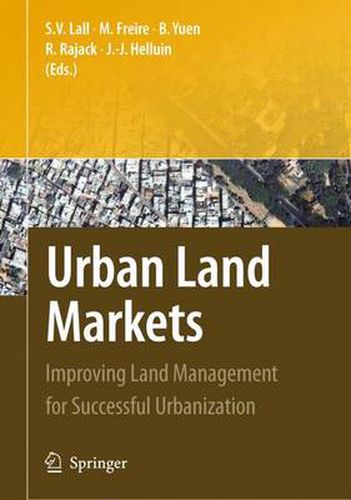Readings Newsletter
Become a Readings Member to make your shopping experience even easier.
Sign in or sign up for free!
You’re not far away from qualifying for FREE standard shipping within Australia
You’ve qualified for FREE standard shipping within Australia
The cart is loading…






This title is printed to order. This book may have been self-published. If so, we cannot guarantee the quality of the content. In the main most books will have gone through the editing process however some may not. We therefore suggest that you be aware of this before ordering this book. If in doubt check either the author or publisher’s details as we are unable to accept any returns unless they are faulty. Please contact us if you have any questions.
As urbanization progresses at a remarkable pace, policy makers and analysts come to understand and agree on key features that will make this process more efficient and inclusive, leading to gains in the welfare of citizens. Drawing on insights from economic geography and two centuries of experience in developed countries, the World Bank’s World Development Report 2009: Reshaping Economic Geography emphasizes key aspects that are fundamental to ensuring an efficient rural-urban transformation. Critical among these are land, as the most important resource, and well-functioning land markets. Regardless of the stage of urbanization, flexible and forward-looking institu- ons that help the efficient functioning of land markets are the bedrock of succe- ful urbanization strategies. In particular, institutional arrangements for allocating land rights and for managing and regulating land use have significant implica- ons for how cities deliver agglomeration economies and improve the welfare of their residents. Property rights, well-functioning land markets, and the management and servicing of land required to accommodate urban expansion and provide trunk infrastructure are all topics that arise as regions progress from incipient urbani- tion to medium and high density.
$9.00 standard shipping within Australia
FREE standard shipping within Australia for orders over $100.00
Express & International shipping calculated at checkout
This title is printed to order. This book may have been self-published. If so, we cannot guarantee the quality of the content. In the main most books will have gone through the editing process however some may not. We therefore suggest that you be aware of this before ordering this book. If in doubt check either the author or publisher’s details as we are unable to accept any returns unless they are faulty. Please contact us if you have any questions.
As urbanization progresses at a remarkable pace, policy makers and analysts come to understand and agree on key features that will make this process more efficient and inclusive, leading to gains in the welfare of citizens. Drawing on insights from economic geography and two centuries of experience in developed countries, the World Bank’s World Development Report 2009: Reshaping Economic Geography emphasizes key aspects that are fundamental to ensuring an efficient rural-urban transformation. Critical among these are land, as the most important resource, and well-functioning land markets. Regardless of the stage of urbanization, flexible and forward-looking institu- ons that help the efficient functioning of land markets are the bedrock of succe- ful urbanization strategies. In particular, institutional arrangements for allocating land rights and for managing and regulating land use have significant implica- ons for how cities deliver agglomeration economies and improve the welfare of their residents. Property rights, well-functioning land markets, and the management and servicing of land required to accommodate urban expansion and provide trunk infrastructure are all topics that arise as regions progress from incipient urbani- tion to medium and high density.